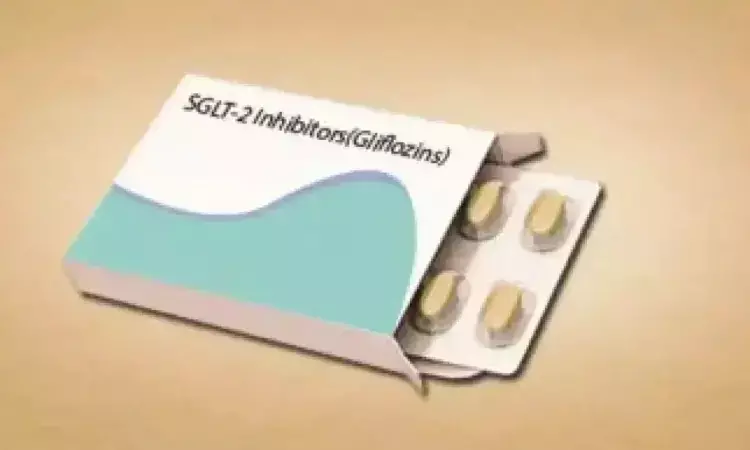- Home
- Medical news & Guidelines
- Anesthesiology
- Cardiology and CTVS
- Critical Care
- Dentistry
- Dermatology
- Diabetes and Endocrinology
- ENT
- Gastroenterology
- Medicine
- Nephrology
- Neurology
- Obstretics-Gynaecology
- Oncology
- Ophthalmology
- Orthopaedics
- Pediatrics-Neonatology
- Psychiatry
- Pulmonology
- Radiology
- Surgery
- Urology
- Laboratory Medicine
- Diet
- Nursing
- Paramedical
- Physiotherapy
- Health news
- Fact Check
- Bone Health Fact Check
- Brain Health Fact Check
- Cancer Related Fact Check
- Child Care Fact Check
- Dental and oral health fact check
- Diabetes and metabolic health fact check
- Diet and Nutrition Fact Check
- Eye and ENT Care Fact Check
- Fitness fact check
- Gut health fact check
- Heart health fact check
- Kidney health fact check
- Medical education fact check
- Men's health fact check
- Respiratory fact check
- Skin and hair care fact check
- Vaccine and Immunization fact check
- Women's health fact check
- AYUSH
- State News
- Andaman and Nicobar Islands
- Andhra Pradesh
- Arunachal Pradesh
- Assam
- Bihar
- Chandigarh
- Chattisgarh
- Dadra and Nagar Haveli
- Daman and Diu
- Delhi
- Goa
- Gujarat
- Haryana
- Himachal Pradesh
- Jammu & Kashmir
- Jharkhand
- Karnataka
- Kerala
- Ladakh
- Lakshadweep
- Madhya Pradesh
- Maharashtra
- Manipur
- Meghalaya
- Mizoram
- Nagaland
- Odisha
- Puducherry
- Punjab
- Rajasthan
- Sikkim
- Tamil Nadu
- Telangana
- Tripura
- Uttar Pradesh
- Uttrakhand
- West Bengal
- Medical Education
- Industry
No need to discontinue SGLT2 inhibitors in response to initial eGFR decline in heart failure patients

USA: SGLT2 inhibitors should not be discontinued in response to an initial decline in the estimated glomerular filtration rate (eGFR) among patients with heart failure and mildly reduced ejection fraction (HFmrEF) or preserved ejection fraction (HFpEF), a recent study has suggested.
The findings from the prespecified secondary analysis of the DELIVER randomized clinical trial were published online in JAMA Cardiology on November 12, 2023.
The researchers showed that among 5788 participants of the DELIVER trial, an initial eGFR decline of greater than 10% (vs ≤10%) was frequent and associated with an increased risk of primary cardiovascular outcome in patients randomized to placebo but not among those randomized to dapagliflozin. An initial eGFR decline greater than 10% was not tied to adverse kidney outcomes among dapagliflozin-treated patients.
The researchers note an expected initial decline in eGFR after initiating a sodium-glucose cotransporter-2 inhibitor (SGLT2i), which has been observed across patients with diabetes, heart failure, and chronic kidney disease. Finnian R. Mc Causland, Brigham and Women’s Hospital, Boston, Massachusetts, and colleagues aimed to examine the implications of initial changes in eGFR among patients with HFmrEF or HFpEF enrolled in the DELIVER trial which took place from 2018 to 2022. DELIVER trial is an international multicenter study of patients with ejection fraction greater than 40% and eGFR greater than or equal to 25.
The study included 5788 participants (mean age 72 years; 56% were males). They received 10 mg per day of dapagliflozin or placebo.
The researchers compared the frequency of an initial eGFR decline (baseline to month 1) between dapagliflozin and placebo. Cox models adjusted for baseline and established prognostic factors were fit to determine the association of an initial eGFR decline with kidney (≥50% eGFR decline, eGFR<15 or dialysis, death from kidney causes) and cardiovascular (cardiovascular death or heart failure event) outcomes, landmarked at month 1, stratified by diabetes.
The study led to the following findings:
- The median change in eGFR level from baseline to month 1 was −1 with placebo and −4 with dapagliflozin (difference, −3).
- A higher proportion of patients assigned to dapagliflozin developed an initial eGFR decline greater than 10% vs placebo (40% versus 25%; odds ratio, 1.9).
- An initial eGFR decline of greater than 10% (vs ≤10%) was associated with a higher risk of the primary cardiovascular outcome among those randomized to placebo (adjusted hazard ratio [aHR], 1.33) but not among those randomized to dapagliflozin (aHR, 0.90).
- Similar associations were observed when alternative thresholds of initial eGFR decline were considered and when analyzed as a continuous measure.
- An initial eGFR decline of greater than 10% was not associated with adverse subsequent kidney composite outcomes in dapagliflozin-treated patients (aHR, 0.94).
"The findings show that an initial eGFR decline was frequent but not associated with subsequent risk of cardiovascular or kidney events among patients with HFmrEF or HFpEF treated with dapagliflozin," the researchers wrote.
"These data reinforce clinical guidance that SGLT2 inhibitors should not be discontinued or interrupted in response to an initial eGFR decline," they concluded.
Reference:
Mc Causland FR, Claggett BL, Vaduganathan M, et al. Decline in Estimated Glomerular Filtration Rate After Dapagliflozin in Heart Failure With Mildly Reduced or Preserved Ejection Fraction: A Prespecified Secondary Analysis of the DELIVER Randomized Clinical Trial. JAMA Cardiol. Published online November 12, 2023. doi:10.1001/jamacardio.2023.4664
Dr Kamal Kant Kohli-MBBS, DTCD- a chest specialist with more than 30 years of practice and a flair for writing clinical articles, Dr Kamal Kant Kohli joined Medical Dialogues as a Chief Editor of Medical News. Besides writing articles, as an editor, he proofreads and verifies all the medical content published on Medical Dialogues including those coming from journals, studies,medical conferences,guidelines etc. Email: drkohli@medicaldialogues.in. Contact no. 011-43720751


